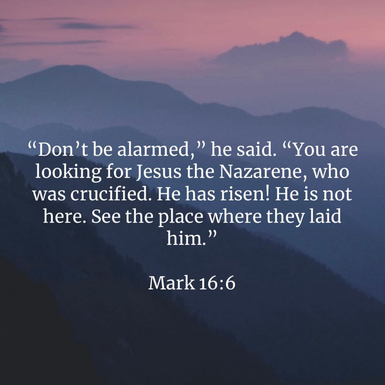|
Good morning!
We're so glad you decided to join us today!
When we meet in person, we share our joys and concerns together. Take some time to consider your past week, and any prayer requests you may have. If you feel comfortable, you can share those requests as a comment on this post. When you are ready, use the prayer below (from Christianity.com) to get started.
Dear God, Thank you for this beautiful group that has gathered to study your Word. Help us to be real with each other and with you today. Give us courage to be honest and to talk with those we trust. We want to experience the hope, freedom, and peace that comes from confession to you and to others. In Jesus' name, amen.
Today's lesson is on John 8:31-38.
This is written by John one of Jesus' closest disciples. Our lesson material is not found in the other synoptic Gospels. I try to imagine what John and the other disciples must have heard and experienced in those three years that they followed Jesus. All the miracles they saw and the words of wisdom Jesus shared with them. Today’s scripture passage is part of a longer discourse that took place in Jerusalem during the Festival of Tabernacles. The observance was one of Israel’s most important celebrations and dated to the time of Moses.
The festival was in late September or early October. Its significance was twofold. First, it celebrated the end of harvest season. Second, it commemorated God’s provision during Israel’s wilderness wanderings. After the Israelites leaving Egypt and before entering the promised land, the people lived in tents. During the festival, a priest took water from the pool of Siloam, carried it to the temple, and poured it over the altar. On the festival final day the priest marched around the altar without pouring water. This act demonstrated hopeful expectation that the Messiah would provide water as had been promised centuries before. On the festival’s seventh day, against this backdrop, Jesus stated, “Let anyone who is thirsty come to me and drink.” Additionally, on each night of the festival, except on the Sabbath, giant oil lamps were lit in the temple’s Court of Women. It was against this backdrop that Jesus proclaimed himself to be “The light of the world” and whosoever followed him “will never walk in darkness, but will have light of life”. Jesus proclaimed himself to be the fulfillment of Israel’s messianic hope, speaking the words of his Heavenly Father. The focus of Jesus teaching was on the Jews who had believed in him. Their belief was due in part, to his pointed teachings and miraculous healing acts. However Jesus questioned whether they had true belief of “he who sent me …You do not know him”. Did their belief go no deeper than simple amazement at his miraculous healing acts? Only those who continue in his teaching were to be counted as among his disciples. Fickle faith in contrast to valid faith is a running theme in this Gospel. Jesus opponents claimed to be disciples of Moses who God spoke through. But now God had revealed himself more fully through Jesus, so to listen to the teaching of Jesus was to listen to God As a result God would hold people accountable just as he did in ancient Israel. They were confused because they had never been slaves so how can they be set free. The people were concerned about an earthly sense of bondage and freedom. Jesus spoke on a more important form. Jesus applied the bondage metaphor to everyone who sins. Such a person would be a slave to sin. The ironic aspect was that it was one’s own sinful desires that bound a person. To find freedom, people should seek to become “slaves to righteousness.“ In a wealthy person’s household a slave would work for his master. However, he could be sold or set free at anytime. By contrast, the master’s firstborn son and heir received all the safety, security and economic advantages of the family. No matter the situation, the son was considered a permanent member of the household and received the blessing of the inheritance to future generations. Jesus pointed his hearers to find permanent freedom from sin through the Son of God and the promise of his inheritance. Jesus taught that only he can set people free from sin. Verse 37 says, “ I know that you are Abraham’s descendants. Yet you are looking for a way to kill me, because you have no room for my word.” True children of Abraham followed in the faith of Abraham. Not only did they refuse to listen to his teaching; they conspired against him. The last verse of this lesson says,”I am telling you what I have seen in my Father’s presence, and you are doing what you have heard from your father.” Jesus words gave witness to his Heavenly Father who sent him but Jesus observed that his audience was more concerned with what they heard from the devil. Jesus' audience thought that their freedom was inevitable because of their ancestry. However, Jesus stated they were deceived. As long as they refused to listen and adhere to the teaching of Jesus, they would not experience true freedom. They would not know their Heavenly Father. By failing to heed Jesus, the audience failed to listen to God.
Conclusion
Modern discussions regarding the concept of freedom revolve around the ideas of personal violation, responsibility and the ability of people to express themselves without interference. But Jesus was less concerned with freedom in that regard. Instead, Jesus was concerned about freedom and liberation from the insidious grip of sin. Jesus’ audience did not realize that they were experiencing this kind of bondage. Their so-called freedom was an illusion based on a lie. Jesus spoke truth because he spoke the words of his Father -a declaration of true freedom. Freedom that comes from the Father leads to eternal life with the Son. Those who carve this freedom will seek Jesus and his word and become his disciples. As such, his disciples will know the truth, and the truth will set you free. A new day of freedom has been established. Prayer Heavenly Father, give us ears to hear your truth and hearts that love your truth. May our attitudes, words, and actions reflect your truth so we can bear witness to your Son. May the world be illuminated by your truth shining in and through us. In Jesus name. Amen. Questions How do you respond to those who sees Christianity as merely following too many rules. How does the Son’s freedom differ than world freedom? Why do you think so many people think that drinking, gambling and doing and saying whatever they want is true freedom? What might the actions and concerns of Christians change as they follow God the Father? The song “Amazing Grace” was written by John Newton. He was a slave ship master bringing slaves from Africa to England but left all that behind him and was ordained as an Anglican priest. In his later years Newton fought beside William Wilberforce, leader of the parliamentary campaign to abolish the African slave trade. Does the background story give you a different outlook on this wonderful song?
Benediction
Our benediction today comes from the New International Version.
Next week's lesson will be on Romans 6:1-14.
0 Comments
Leave a Reply. |
AuthorWe are a small, rural Presbyterian church in southwestern Pennsylvania. Archives
July 2024
Categories
All
|



 RSS Feed
RSS Feed